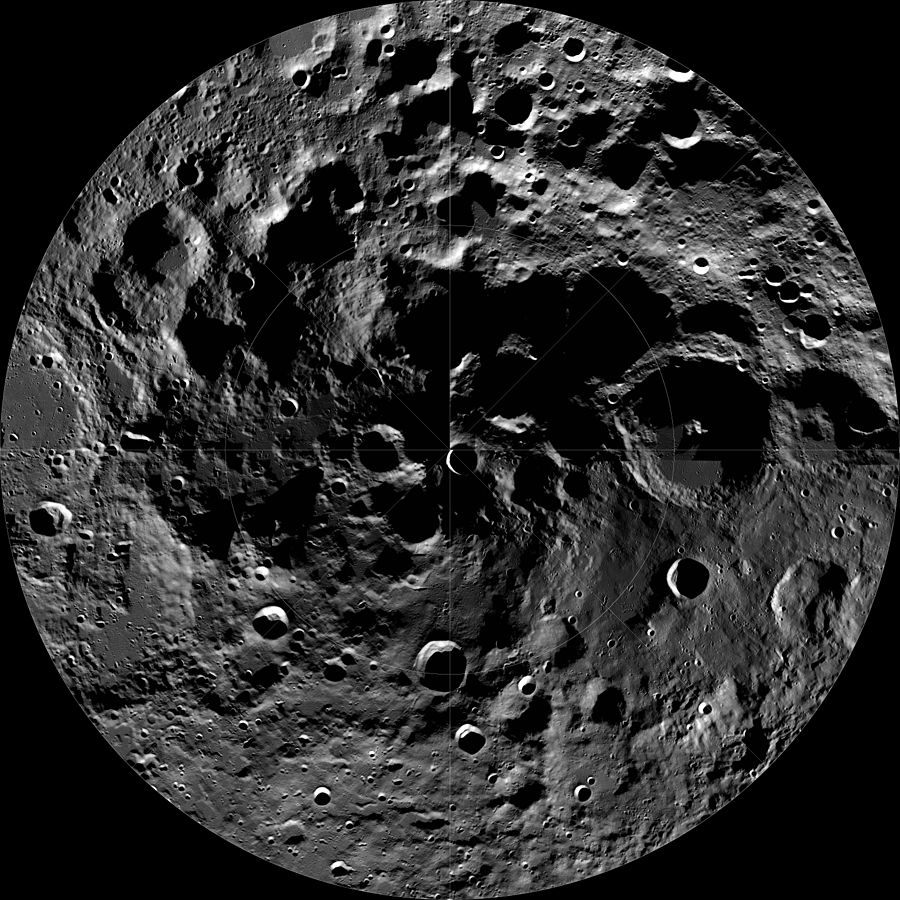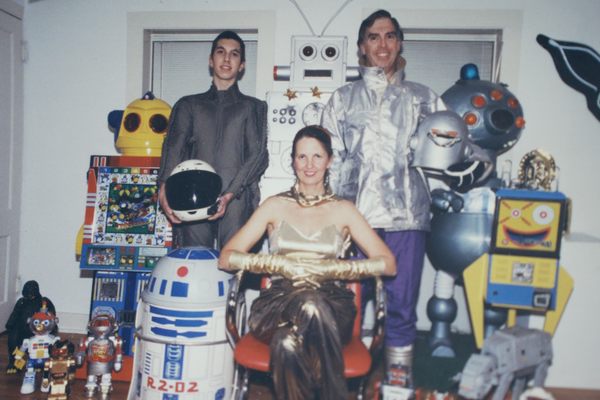Kickstarting All the Way to the Moon
 ROC Wide Angle Camera mosaic of the lunar South Pole region (photograph by NASA/Wikimedia)
ROC Wide Angle Camera mosaic of the lunar South Pole region (photograph by NASA/Wikimedia)
The UK scientists and engineers behind Lunar Mission One successfully completed a £670,000 (nearly $1 million) Kickstarter campaign this week. As reported in Popular Science, the funds will support the start of a decade-long project to send an unmanned landing module to the Moon’s less-explored south pole, where it will drill deep into the surface to access 4.5-billion-year-old rock. The module will also leave something behind: a 21st-century time capsule containing a thorough record of life on Earth as well as millions of personal “digital memory boxes.”
The goal of the project is to “discover the geological composition of the Moon, the ancient relationship it shares with our planet, and the effects of asteroid bombardment,” in order to increase our understanding of how the Moon and the Earth were formed, as well as their relationship to one another and to our solar system. The Lunar Mission team will also be investigating the possibility of building a permanently manned base on the Moon, and the project will strive to engage more young people in space exploration and the STEM fields.
More than 7,000 people contributed to the Kickstarter campaign, which featured rewards like attendance at the rocket’s launch, a place in the viewing gallery at Mission Control, and an inscription of the donor’s name on the spacecraft itself. To meet the projects continued funding needs, Lunar Missions Trust will sell many more digital memory boxes to individuals and groups who want their own “place in space.” The time capsule can hold tens of terrabytes, so millions of people will be able to upload photos, songs, and messages that will be stored under the Moon’s surface for about a billion years.
The mission has been backed and endorsed by some of the world’s most respected scientists and research institutions, including Chair of the UK Parliamentary Space Committee Adam Afriyie, National Space Academy Director Anu Ojha, and Professor Steven Hawking. As University of Surrey Physics Professor Jim Al-Khalili said, “Lunar Mission One is much more than the next big space mission, it is an opportunity for everyone to be involved in humanity’s next great adventure.”












Follow us on Twitter to get the latest on the world's hidden wonders.
Like us on Facebook to get the latest on the world's hidden wonders.
Follow us on Twitter Like us on Facebook